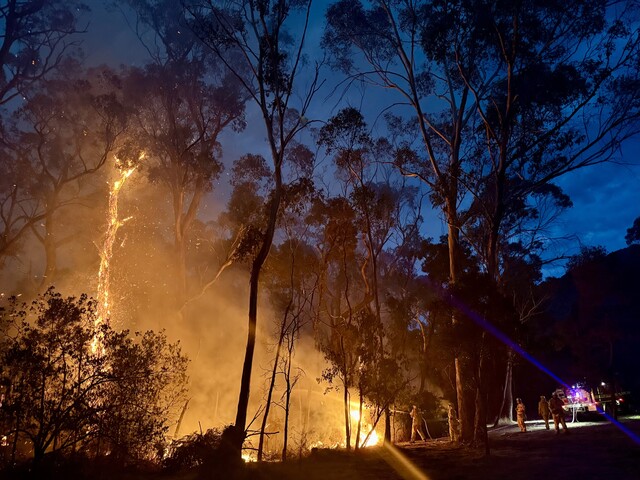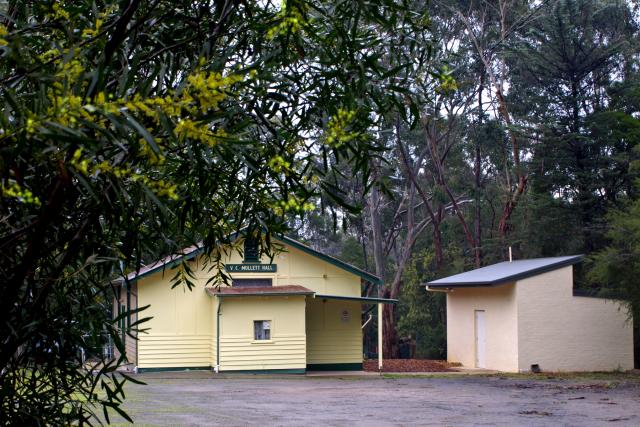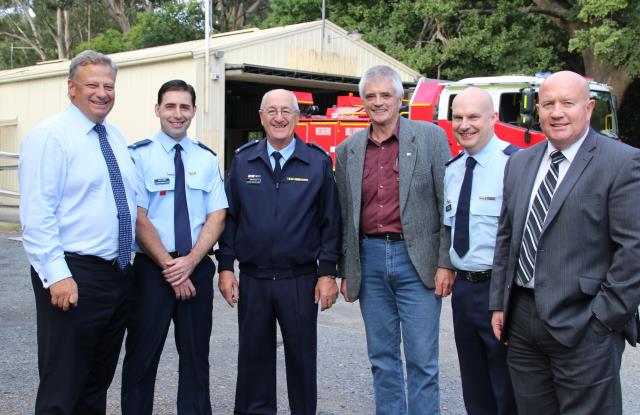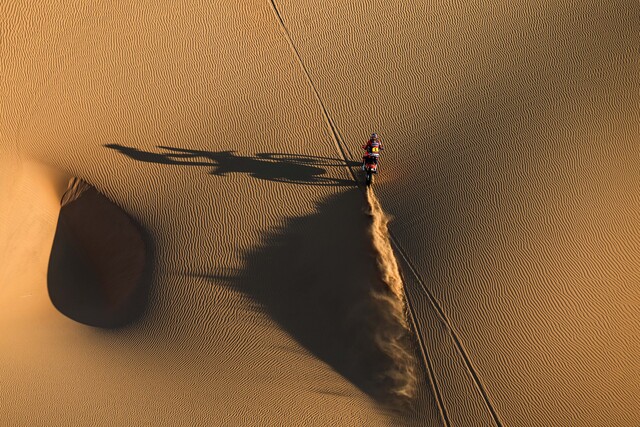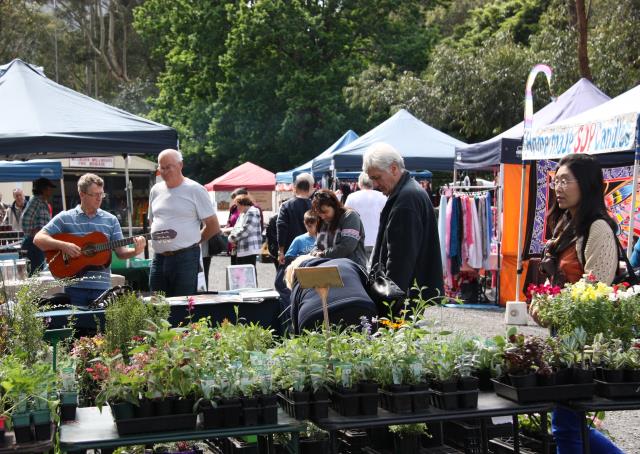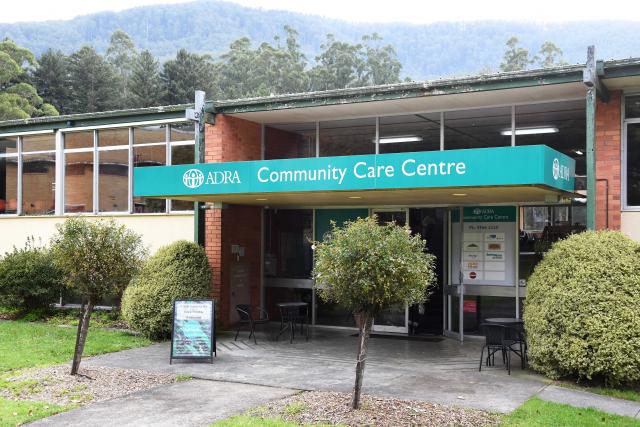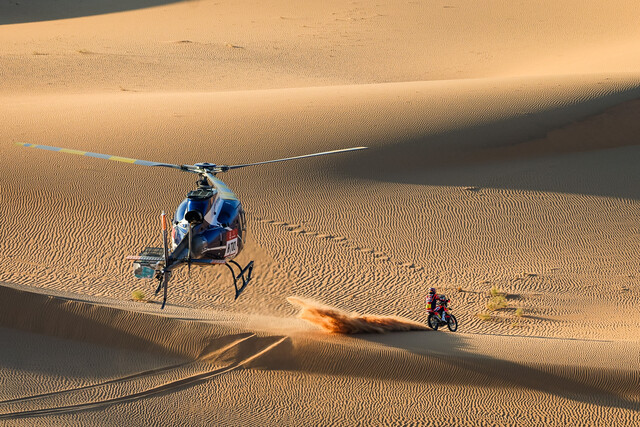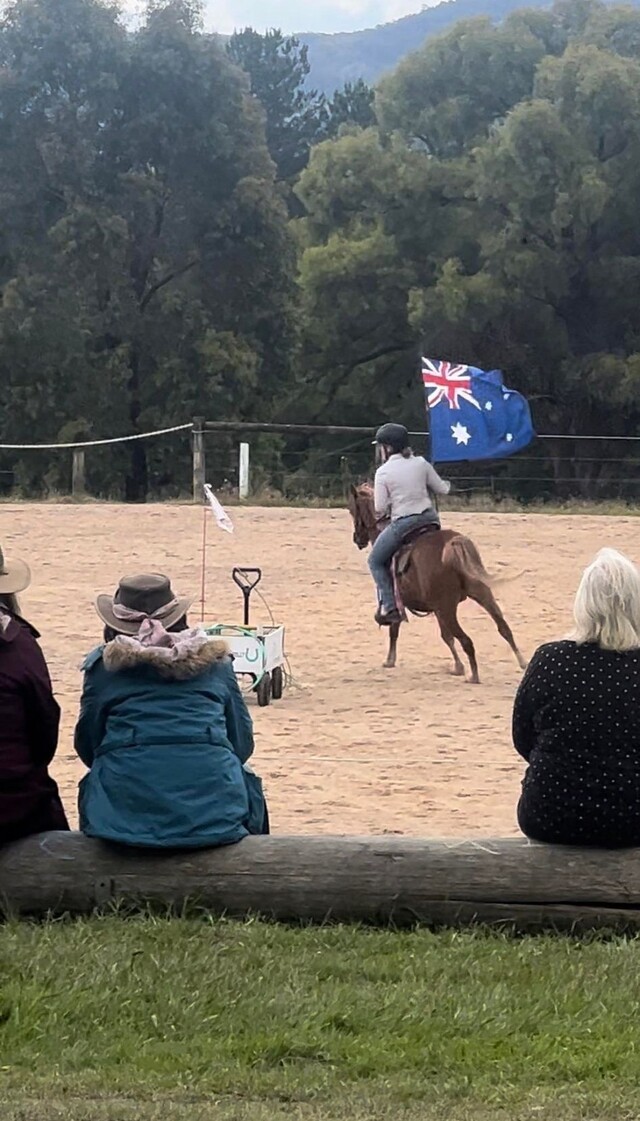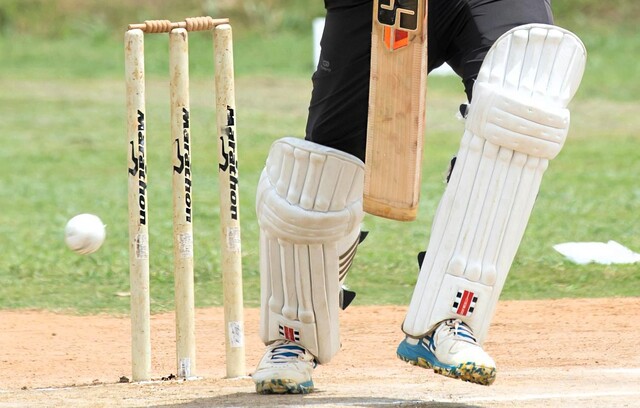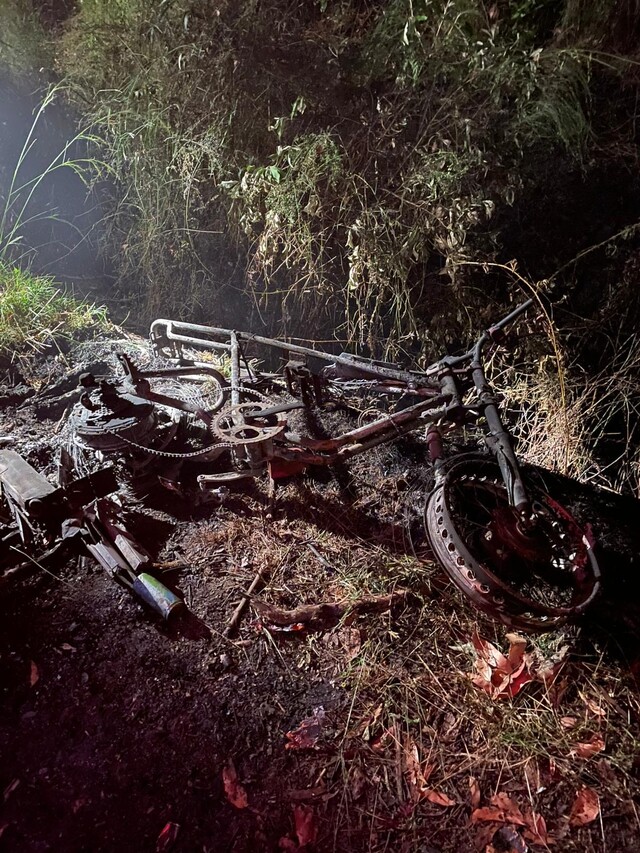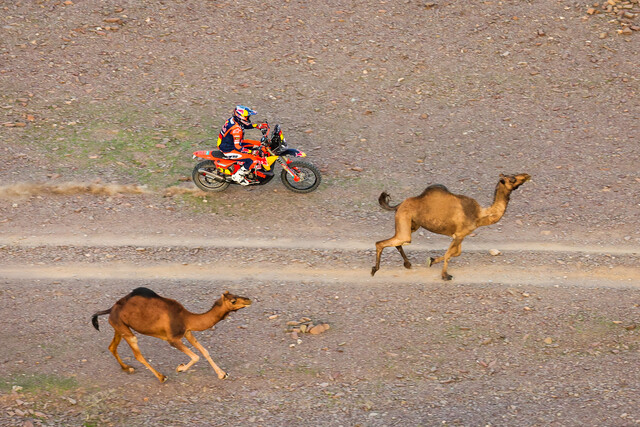AS HEALESVILLE Fire Brigade volunteer Melanie Caldwell was driving the strike team leader vehicle into Steels Creek on Black Friday, her husband, Tom, was fighting fires in Gippsland and her 17-year-old daughter, Kristen, was on a truck at Chum Creek.
Healesville brigade mustered early on Saturday 7 February, with Captain Graeme Bates taking control of operations from the station, one crew joining the Mount Evelyn strike team heading down to the Bunyip fires and the Maroondah group strike team waiting at Healesville.
They knew they’d be fighting fires somewhere before the day was out.
Graeme sent the Healesville tanker and slip to Yarra Glen.
“When they lost control down there they called for the strike team,” he said.
Healesville was left with one pumper in the town.
When Melanie headed out their two younger girls, Loren, 14, and Sarah, 10, were back at the station in Healesville.
In the midst of the inferno which engulfed Steels Creek, there was no escaping the reality of just how dangerous the fires were that were raging around the state.
It was no time for multi-tasking. Melanie was worried about her own family but the job demanded nothing less than total focus.
In the end she said, it was about trust and training.
“I was worried, of course, not so much about Tom, he’s been doing it for years,” she said.
“With my daughter … it was her first big fire but I knew the captain was keeping all the younger crew in the town.”
Tom, a first-lieutenant with the brigade, did have time to think about it all, and that was worse.
He was on the Mount Evelyn strike team deployed to Nar Nar Goon and Drouin about 2.30pm.
“We ended up at the caravan park at Jindavick. We lost seven cabins but saved about 30 and then the road was closed, the bush was burning all around us and we couldn’t get out,” he said.
“By about 6pm the pagers were going ballistic with all these jobs in Healesville.
“We were getting reports on ABC radio on how bad it all was but had no phone service in or out.
“I knew Melanie was somewhere but didn’t know where and I knew our daughter would be out there too, and the two girls at home with the two dogs.
“Lack of information was the biggest killer,” he said.
Finally they were able to make contact and while that brought some reassurance, it also revealed just how bad things were back home.
Tom says to their credit not one of the strike team members asked to go home.
“We stayed with the team doing that job and knowing that help was coming (to the Yarra Valley) from other areas. We know with the CFA, if we’re out there helping, someone else is out there helping us.”
Kristen organised her grandparents to collect her younger sisters and as fire calls were coming in to the station from all over the district she headed out to Badger Creek, then to Chum Creek.
Not knowing where her mum and dad were at that stage was difficult.
“I was the only one (of the family) in town at the time when everything broke lose.
“On the truck I had no idea where dad was and I had no idea where mum was.
“There’s no mobile phones on the fire ground so, because I had no communication, yeah, I was worried – pretty much for the whole of Saturday.”
Kristen said it was an experience worth going through, even if it was “a little bit scary”.
“We were with Damien Beeby and he’s a really good officer, he helped us through it.
“I felt like I was in really good hands with some of the older, experienced people on the truck with me.”
It was a hell of a proving ground.
“You really had to prove yourself,” Kristen said and she admits a big part of that was not knowing where her parents were and the intensity and scope of the job.
“There was no room to break down, to go ‘oh my God, what’s going on’ you just had to be strong and put your emotions aside. That’s the hardest thing to do; you just have to get on and deal with it later.”
Tom is proud of what his girls are doing – Lauren is a member of the Hoddles Creek Junior Brigade – and, yes, he does see it as remarkable.
“It’s a male dominated area and its remarkable for any women in the fire brigade; the younger they are I think the more remarkable.
“It takes a certain type of person, man or woman, you have to be community minded, open minded and open to new experiences.
Melanie said women have been on the front line before when it’s been needed.
“Women helped out during the Second World War, so I am informed by my Nanna. I wouldn’t say every woman would be able to do it but I wouldn’t say every man would either.”
Continued page 29

